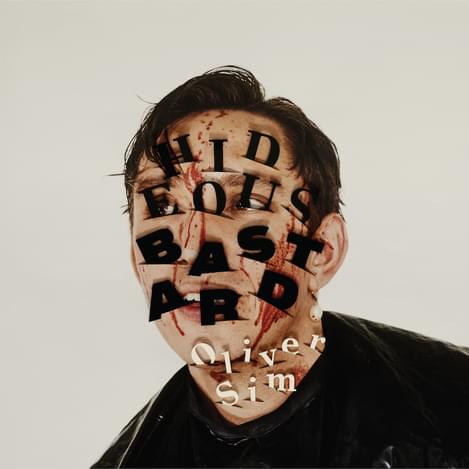Hideous Bastard is Oliver Sim celebrating the imperfect
"Hideous Bastard"

Stepping out of the indie-pop minimalism of The xx, Hideous finds Oliver Sim embarking on a horror-fuelled queer musical, redefining what it means to be hideous.
The most striking line comes at the finale of the title track: Sim plainly asking, “Been living with HIV / Since seventeen / Am I hideous?”; a sharp observation, hypothesising as to what makes something ugly, something hideous; to be a part of a community whose mere existences have been brutally stigmatised for decades.
On lead single, “Romance With A Memory”, eerie production pops and swells underneath Sim’s notoriously velvet vocals; singing, “Handsome, I’d only wanted to feel / Handsome but there’s excitement in the feeling / Of not getting what I needed”. Where some examples of queer mainstream contemporary pop are arguably heteronormatively superficial and saccharine, Hideous is able to straddle the line between a celebration of sexuality, whilst going beyond themes purely of self-love and physical exaltation that have come to dominate feel-good pop music in recent years.
“GMT” is smoky and trance-like, and is as sweetly simple as it is romantic. Sim croons effortlessly in a way that sounds as if he is singing entirely for himself; “I’m on Greenwich meantime missing you, / Missing you someone decided to save my life / Pink & blue, pink & blue”. It is in these moments on the album that the blissful sincerity of Hideous appears to share DNA with as painfully lovely songs such as, “Hope There’s Someone” by Antony and the Johnsons, where bittersweet lyrics are juxtaposed against a melody that evokes a tragic hopelessness.
“Fruit” is similarly fatal, ringing as if Rufus Wainwright covered a song from Paramore’s After Laughter. Despite conveying a darker side of the queer experience, it is cathartic to hear lines like, “Far too femme surrounded by rocks you’re / Gonna look the gem you can dress it away”, expressed so defiant and outwardly.
Sim has noted that “[he] doesn’t see this record as being a Debbie Downer”, and I think this is most apparent in songs like “Hideous” and “Fruit”. On the surface, these songs may appear to be harrowingly self-loathing, and yet subjects that have been previously taboo are victoriously celebrated for the way they are so openly discussed.
Hideous is a celebration of the imperfect, of the times in which we don’t always feel our best; in a world that encourages us to constantly feel our most beautiful, Hideous shows us that our worth is not bound to our physical identities.
Get the Best Fit take on the week in music direct to your inbox every Friday

Bon Iver
SABLE, fABLE

Mamalarky
Hex Key

Florist
Jellywish





